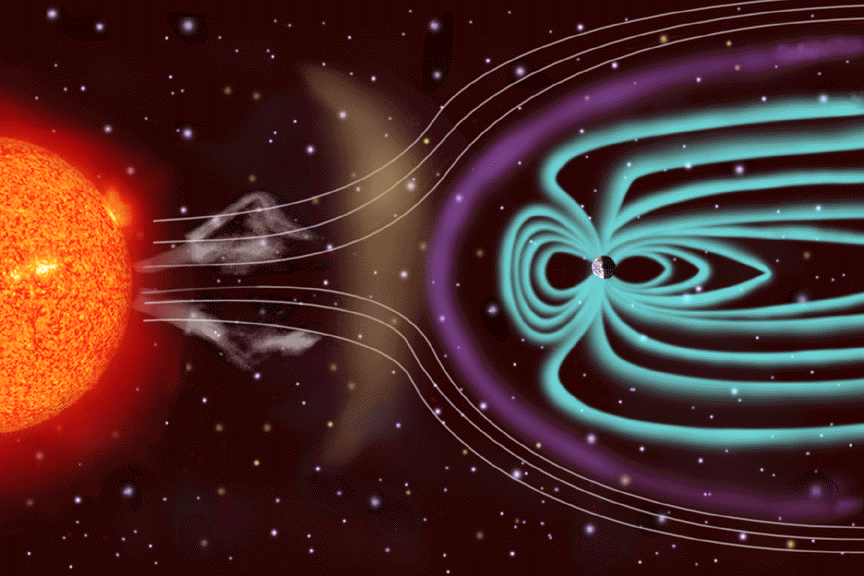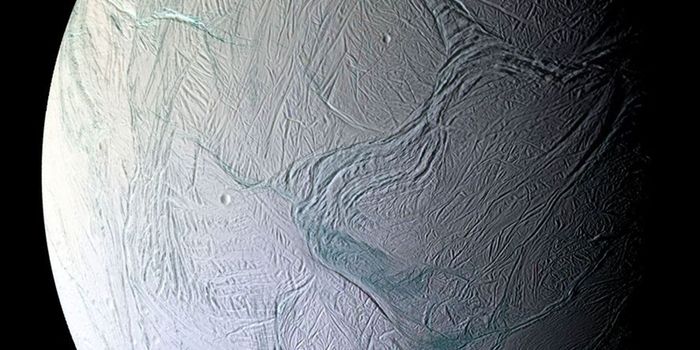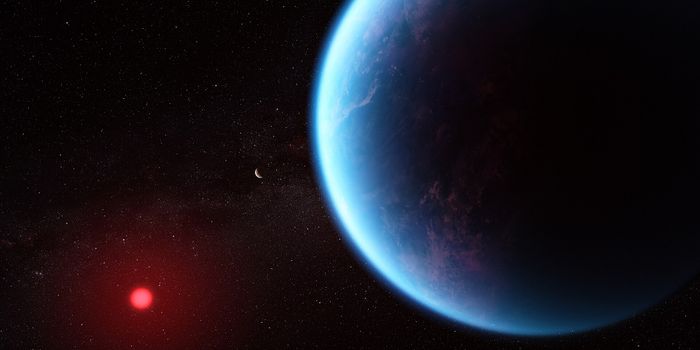Did a Solar Storm Damage Earth's Magnetic Field?
In the Summer of 2015, a solar storm reportedly wreaked havoc on the Earth’s magnetic field. During the freak event, which reportedly lasted just a couple of hours, the Earth’s magnetosphere reportedly shrunk from 11 times the Earth’s radius to just four.

Image Credit: NASA
The solar storm was so strong that not only did it get passed Earth’s natural defense against cosmic radiation, but it also impacted technology in certain regions of the world, particularly in the Northern hemisphere.
Although it put on a spectacular Northern Lights (Aurora Borealis) show, it may have also left a considerable dent in the Earth’s magnetic field permanently.
Despite happening more than a year ago, a study has just popped up in Physical Review Letters that actually shows just how scary this kind of thing really is.
Powerful solar winds capable of breaking through the Earth’s magnetic field could have dire consequences, as the magnetic field is the Earth’s only real defense against them. They have the potential to knock out various kinds of technology because they act a lot like electromagnetic pulses (EMPs).
But aside from that, these solar winds carry harmful radiation that could harm life on Earth, or even the astronauts orbiting Earth.
Humans in particular are sensitive to the Sun’s radiation, but if more radiation is allowed through the magnetic field, which normally deflects most of the harmful particles away from us, then skin cancers of all kinds could easily become far more widespread in the affected areas.
The study referenced suggests that we must continue to be mindful of our magnetic field, because it allows our planet to be the beautiful planet it is today. Magnetic storms like this one could further damage the Earth’s magnetic field, eventually turning it into an ineffective means of protection against radiation from space.
If this happened, we have an idea of what could happen to our planet already. You can turn your attention to Mars, a planet that was once thought to have a thriving magnetic field, but seems to have a very weak one today. Mars, which once had flowing water and possibly even life, is now a barren wasteland of sand and rock.
It’ll probably be a very long, long, longggggg time before Earth’s magnetic field is ever ineffective, since it has lasted this long already, but space can be unpredictable. Fortunately, experts in the field have all kinds of observation equipment to keep track of this sort of thing.
Source: Wired








